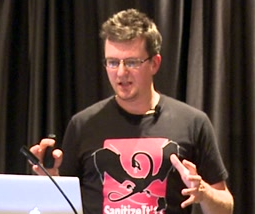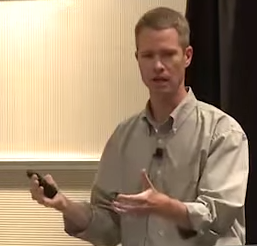Standardizing Variant: Difficult Decisions -- Anthony Williams
Techincal discussion information while standardizing N4542.
Standardizing Variant: Difficult Decisions
by Anthony Williams
From the article:
One of the papers proposed for the next version of the C++ Standard is N4542: Variant: a type safe union (v4). As you might guess from the (v4) in the title, this paper has been discussed several times by the committee, and revised in the light of discussions.Boost has had a variant type for a long time, so it only seems natural to standardize it. However, there are a couple of design decisions made for boost::variant which members of the committee were uncomfortable with, so the current paper has a couple of differences from boost::variant. The most notable of these is that boost::variant has a "never empty" guarantee, whereas N4542 proposes a variant that can be empty.

 While we wait for CppCon 2015 in September, we’re featuring videos of some of the 100+ talks from CppCon 2014. Here is today’s feature:
While we wait for CppCon 2015 in September, we’re featuring videos of some of the 100+ talks from CppCon 2014. Here is today’s feature: While we wait for CppCon 2015 in September, we’re featuring videos of some of the 100+ talks from CppCon 2014. Here is today’s feature:
While we wait for CppCon 2015 in September, we’re featuring videos of some of the 100+ talks from CppCon 2014. Here is today’s feature: While we wait for CppCon 2015 in September, we’re featuring videos of some of the 100+ talks from CppCon 2014. Here is today’s feature:
While we wait for CppCon 2015 in September, we’re featuring videos of some of the 100+ talks from CppCon 2014. Here is today’s feature: While we wait for CppCon 2015 in September, we’re featuring videos of some of the 100+ talks from CppCon 2014. Here is today’s feature:
While we wait for CppCon 2015 in September, we’re featuring videos of some of the 100+ talks from CppCon 2014. Here is today’s feature: